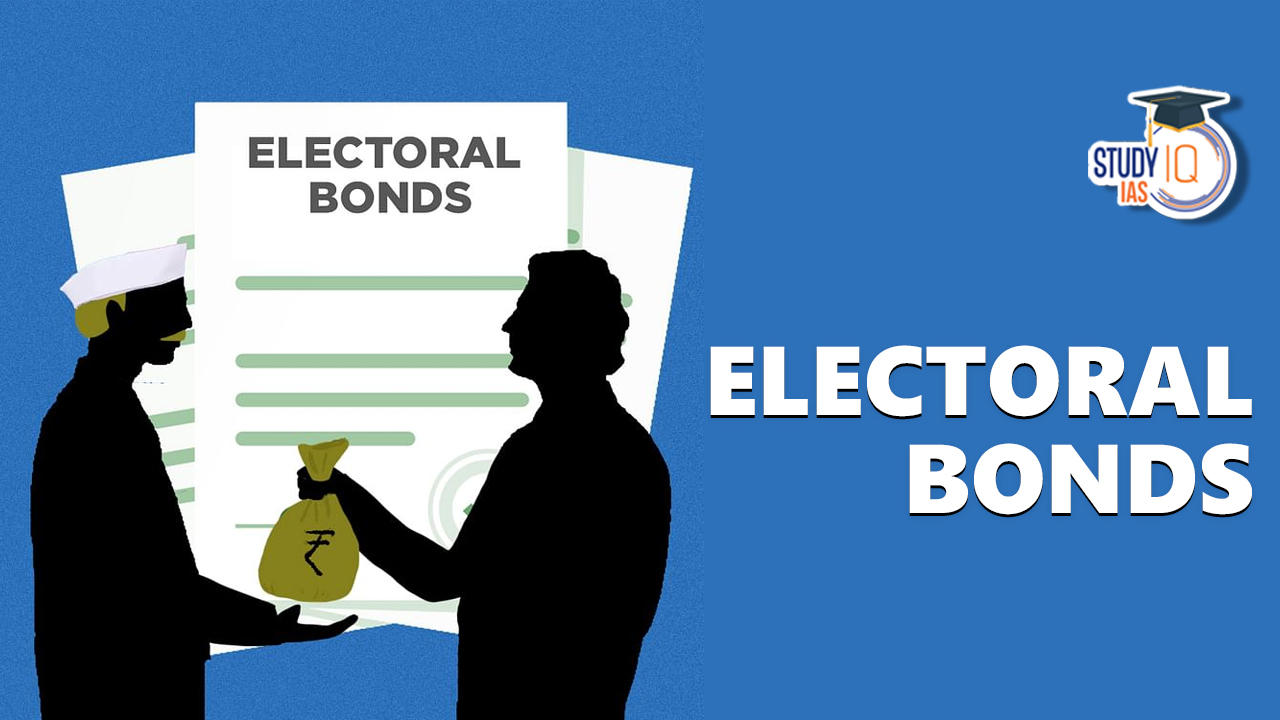Table of Contents
Context: According to a report by the Association of Democratic Reforms (ADR), electoral bonds were the chief source of donations for political parties between 2016-17 and 2021-22.
Key Highlights of the ADR’s Report
- Between 2016-17 and 2021-22, seven national and 24 regional parties received a total donation of ₹16,437.63 crore.
- Out of the total donations, 55.9% was from the electoral bonds, 28.07% was received from the corporate sector and 16.03% from other sources.
- For national parties, there was a 743% increase in donations from electoral bonds between 2017-18 and 2021-22, while corporate donations rose only 48%.
- The total donations declared by the BJP is more than three times the total donations declared by all other national parties, the report said.
- More than 52% of the BJP’s total donations came from electoral bonds worth ₹5,271.97 crore. The Congress declared the second highest donations from bonds of ₹952.29 crore (61.54% of its total donations) followed by the Trinamool Congress that got ₹767.88 crore (93.27%).
What are Electoral Bonds?
- Electoral Bonds are like Promissory Notes which can be purchased by any individual who is an Indian Citizen or a body corporate which is established or incorporated in India.
- The Individual or the body corporate can donate the purchased Electoral Bond to any eligible political party of his or her choice.
- The Concept of the electoral bond was introduced with the Finance Bill, 2017. Later, in 2018, the NDA government notified the Electoral Bond Scheme To alternate cash donations and to ensure transparency in political funding.
Key Features of the Electoral Bond Scheme 2018
- Donor eligibility: Electoral Bonds may be purchased by a person, who is a citizen of India or incorporated or established in India. A person being an individual can buy Electoral Bonds, either singly or jointly with other individuals.
- Every Donor has to provide his/her KYC details to the respective to purchase the Electoral Bonds while the Donor’s name would be kept confidential.
- Receiver eligibility: Only the Political Parties registered under Section 29A of the Representation of the People Act, 1951 and which secured not less than one per cent of the votes polled in the last General Election to the House of the People or the Legislative Assembly of the State, shall be eligible to receive the Electoral Bonds.
- Authorized bank: The Electoral Bonds shall be encashed by an eligible Political Party only through a Bank account with the Authorized Bank.
- State Bank of India (SBI) has been authorized to issue and encash Electoral Bonds through its 29 Authorized Branches (as per list enclosed) in the month of May 2019.
- The bonds are issued by SBI in denominations of Rs 1,000, Rs 10,000, Rs 1 lakh, Rs 10 lakh and Rs 1 crore.
- Validity: The Electoral Bonds shall be valid for fifteen calendar days from the date of issue. And, the Electoral Bond deposited by an eligible Political Party in its account shall be credited on the same day.
Significance of Electoral Bonds
- Enhanced Transparency: Electoral bonds promote greater transparency by requiring political parties to engage with the election commission, regulatory authorities, and the general public in a more open and accountable manner.
- Discouragement of Cash Transactions: Electoral bonds can only be purchased through a limited number of designated banks using cheques or digital payments. This discourages the use of cash in political funding.
- Preservation of Donor Anonymity: Electoral bonds allow individuals, groups, NGOs, religious organizations, and other trusts to donate without revealing their personal details. Consequently, the identity of the donor remains confidential.
- Accountability Assurance: Donations made through electoral bonds are exclusively credited to the party’s disclosed bank account registered with the Election Commission of India (ECI). As all donations are processed through banking channels, political parties are obligated to provide explanations regarding the utilization of the entire donation amount.
Concerns with Electoral Bonds
- Limiting Transparency: Electoral bonds hinder the voters’ ability to know which individuals, companies, or organizations have funded political parties and to what extent. This change infringes upon the citizens’ “Right to Know” and reduces the accountability of the political class, as parties are no longer required to disclose all their donors.
- Limited Anonymity: The anonymity provided by electoral bonds is shallow, as the government can access donor details by demanding data from the State Bank of India (SBI). This means that taxpayers are the only ones kept in the dark about the source of these donations.
- Potential for Crony-Capitalism: Electoral bonds could become a convenient channel for businesses to route their cash from tax havens to political parties in exchange for favors or advantages. Anonymous funding may also facilitate the infusion of black money into the system.
- Unauthorized Donations: The use of electoral bonds makes it difficult to ascertain if political parties have received contributions in violation of the provisions under Section 29B of the RPA, 1951, which prohibits donations from government companies and foreign sources. Non-reporting of such contributions hampers transparency.
- Loopholes: Corporate entities may not benefit from transparency as they might still have to disclose the donated amount to the Registrar of Companies. Furthermore, electoral bonds eliminate the 7.5% cap on company donations, allowing even loss-making companies to make unlimited contributions, creating potential loopholes.
Way Forward
- The government may reconsider and modify certain provisions of the Electoral Bonds Scheme to ensure full disclosure and transparency.
- At the same time, the bonds should ensure that the funds being collected by the political parties are accounted for clean money from the appropriate channels without any obligation of give and take.
- There is a need for effective regulation of political financing along with bold reforms to break the vicious cycle of corruption and erosion of quality of democratic polity.
























 WhatsApp
WhatsApp